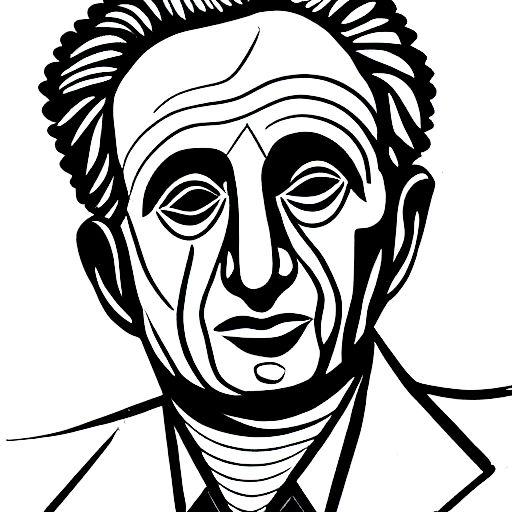Elia Kazan ; September 7, 1909 – September 28, 2003) was an American film and theatre director, producer, screenwriter and actor, described by The New York Times as "one of the most honored and influential directors in Broadway and Hollywood history".Born in Constantinople (now Istanbul), to Cappadocian Greek parents, his family came to the United States in 1913. After attending Williams College and then the Yale School of Drama, he acted professionally for eight years, later joining the Group Theatre in 1932, and co-founded the Actors Studio in 1947. With Robert Lewis and Cheryl Crawford, his actors' studio introduced "Method Acting" under the direction of Lee Strasberg. Kazan acted in a few films, including City for Conquest (1940).His films were concerned with personal or social issues of special concern to him. Kazan writes, "I don't move unless I have some empathy with the basic theme." His first such "issue" film was Gentleman's Agreement (1947), with Gregory Peck, which dealt with antisemitism in America. It received eight Oscar nominations and three wins, including Kazan's first for Best Director. It was followed by Pinky (1949), one of the first films in mainstream Hollywood to address racial prejudice against African Americans. A Streetcar Named Desire (1951), an adaptation of the stage play which he had also directed, received twelve Oscar nominations, winning four, and was Marlon Brando's breakthrough role. Three years later, he directed Brando again in On the Waterfront, a film about union corruption on the New York harbor waterfront. It also received 12 Oscar nominations, winning eight. In 1955, he directed John Steinbeck's East of Eden, which introduced James Dean to movie audiences.
A turning point in Kazan's career came with his testimony as a witness before the House Committee on Un-American Activities in 1952 at the time of the Hollywood blacklist, which brought him strong negative reactions from many friends and colleagues. His testimony helped end the careers of former acting colleagues Morris Carnovsky and Art Smith, along with the work of playwright Clifford Odets. Kazan and Odets had made a pact to name each other in front of the committee. Kazan later justified his act by saying he took "only the more tolerable of two alternatives that were either way painful and wrong." Nearly a half-century later, his anti-Communist testimony continued to cause controversy. When Kazan was awarded an honorary Oscar in 1999, dozens of actors chose not to applaud as 250 demonstrators picketed the event.Kazan influenced the films of the 1950s and 1960s with his provocative, issue-driven subjects. Director Stanley Kubrick called him, "without question, the best director we have in America, [and] capable of performing miracles with the actors he uses.": 36 Film author Ian Freer concludes that even "if his achievements are tainted by political controversy, the debt Hollywood—and actors everywhere—owes him is enormous." In 2010, Martin Scorsese co-directed the documentary film A Letter to Elia as a personal tribute to Kazan.
Sol turns thousands of years of human wisdom from the world’s spiritual traditions into a totally unique personality profile. To get your own profile, check compatibility with friends and much more, download the Sol App today.
Some of their strengths
Elia Kazan has many admirable traits.
Based on spiritual traditions from around the world, they are someone who can be described as Energetic, Sophisticated, Passionate, Curious, Intelligent, Intuitive, and Ambitious.
Smart and Sophisticated
According to Mysticism’s Astrology tradition, Elia Kazan is someone who is a smart, sophisticated, and organized person who displays kindness and grace in every day interactions, and who also has a passionate soul. A person who defines themself by their friends and what groups they belong to.
Active and Precise
Based on Daoism’s Ba-Zi or ‘Chinese Zodiac’ tradition, people who know Elia Kazan well know them as someone who can be tough, active, and sharp, like a sword.
Ambitious and Forceful
According to Hinduism’s Jyotisha or ‘Vedic Astrology’ tradition, many would also describe Elia Kazan as someone who is ambitious, hard-working, determined, and intelligent.
A person who has a knack for identifying opportunities, has amazing concentration and focus, who can work independently, who likes starting new things, and who is somewhat of an intellectual.
Intelligent and Leadership-oriented
Based on the Mayan Tzolk’in or ‘Mayan Astrology’ tradition, Elia Kazan is someone who is able to see things that others don't, and who can be an effective guide or mentor to others.
They are also someone who is calm, comforting, and stable, and who loves stability and being a good friend and loyal partner.
Altruistic and Purposeful
According to Judaism’s Kabbalah tradition, Elia Kazan tends to be someone who has a desire to be of service to a higher calling and who is always trying to perfect things. Who can be practical and polished, reserved and methodical, and who tends to trust internal judgment before trusting anyone else at face value.
Some of Elia Kazan's challenges
While Elia Kazan has many strengths, nobody is perfect. They also have some challenging traits they need to manage.
For example, Elia Kazan can be Difficult, Perfectionist, Hypocritical, Self-centered, Complicated, Brusque, and Relentless.
Difficult and Perfectionist
One of Elia Kazan's key challenges is that they are someone who can be difficult and too much of a perfectionist.
Elia Kazan must also exercise caution as they can have a hard time reconciling wants and needs.
Relentless and Inflexible
Elia Kazan is someone who can be relentless, obsessive, and inflexible, who can be confrontational with work colleagues, can have difficulty communicating feelings and be somewhat reclusive, and who can be self-destructive, overindulgent, and extravagant.
Critical and Bossy
Finally, Elia Kazan also can be too focused on the small details of life, try to control whatever is happening, and be finicky and demanding.

